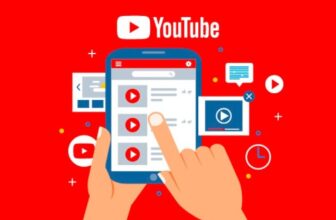
In today’s digital age, small businesses face the challenge of standing out in a crowded marketplace. With the rapid growth of the internet, businesses have a powerful tool at their disposal: internet marketing. This article explores the advantages of small business internet marketing and how it can benefit your business. From reaching a wider audience to building brand authority, let’s delve into the world of internet marketing and unlock its potential for your small business.
1. Understanding Small Business Internet Marketing
Before diving into the advantages, it’s crucial to understand what small business internet marketing entails. Small business internet marketing refers to various strategies and techniques employed by small businesses to promote their products or services online. These strategies may include search engine optimization (SEO), social media marketing, content marketing, email marketing, and more. The goal is to leverage the internet’s reach and influence to connect with potential customers and drive business growth.
2. Advantages of Small Business Internet Marketing
Small business internet marketing offers numerous advantages that can significantly impact your business’s success. Let’s explore the key advantages in detail.
3. Increased Visibility
In today’s digital landscape, having a strong online presence is essential. Small business internet marketing allows you to increase your visibility and be easily found by potential customers. By implementing effective SEO techniques and utilizing various online marketing channels, your business can rank higher in search engine results, making it more likely for users to discover and visit your website.
4. Targeted Advertising
Unlike traditional marketing methods that cast a wide net, small business internet marketing enables targeted advertising. Through various online platforms and tools, you can precisely target your desired audience based on demographics, interests, and browsing behavior. This targeted approach ensures that your marketing efforts reach the right people, increasing the chances of converting leads into customers.
5. Cost-Effective Marketing
For small businesses with limited marketing budgets, internet marketing offers a cost-effective solution. Compared to traditional advertising methods such as print ads or TV commercials, online marketing channels often have lower entry barriers and more affordable options. You can leverage social media platforms, email marketing campaigns, or content creation without breaking the bank, allowing you to allocate your resources wisely.
6. Building Brand Authority
Establishing your brand as an authority in your industry is crucial for long-term success. Small business internet marketing provides opportunities to showcase your expertise and build credibility. By consistently delivering valuable and informative content through blogs, videos, or social media, you can position your brand as a trusted source of information, gaining the trust and loyalty of your target audience.
7. Measurable Results
One of the significant advantages of internet marketing is the ability to measure and analyze your marketing efforts accurately. With the help of analytics tools, you can track website traffic, user engagement, conversion rates, and other key performance indicators. This data-driven approach enables you to make informed decisions and optimize your marketing strategies for better results.
8. Reaching a Global Audience
Unlike traditional brick-and-mortar businesses, small business internet marketing allows you to reach a global audience without geographical limitations. With the power of the internet, your products or services can be accessed by potential customers worldwide, expanding your market reach and opening up new growth opportunities.
9. Generating Qualified Leads
Lead generation is a crucial aspect of any marketing strategy. Small business internet marketing enables you to attract and generate qualified leads. Through various tactics such as lead magnets, landing pages, and email opt-ins, you can capture valuable contact information from interested prospects. These leads have shown genuine interest in your offerings, increasing the chances of converting them into paying customers.
10. Enhancing Customer Engagement
Internet marketing provides multiple channels to engage with your customers and build strong relationships. Social media platforms, email newsletters, and online communities offer opportunities for direct interaction, feedback, and customer support. By actively engaging with your audience, addressing their concerns, and providing valuable content, you can foster a loyal customer base that advocates for your brand.
11. 24/7 Availability
Unlike traditional business hours, the internet never sleeps. With small business internet marketing, your business is accessible 24/7. Customers can browse your products, place orders, or seek information at any time that suits them best. This flexibility enhances customer convenience and satisfaction, contributing to a positive brand experience.
12. Gaining a Competitive Edge
In a highly competitive market, small business internet marketing can give you a competitive edge. By staying updated with the latest digital marketing trends and leveraging innovative strategies, you can differentiate your business from competitors. A well-executed internet marketing campaign can capture the attention of your target audience, making you the go-to choice in your industry.
13. Expanding Customer Base
Internet marketing opens doors to new customer segments that may have been inaccessible through traditional marketing channels. By crafting targeted campaigns and reaching out to niche markets, you can expand your customer base and tap into previously untapped markets. This expansion not only boosts sales but also diversifies your revenue streams for long-term sustainability.
14. Social Media Marketing
Social media platforms provide a powerful avenue for small business internet marketing. With billions of active users, platforms like Facebook, Instagram, and Twitter offer immense opportunities for brand exposure, customer engagement, and driving website traffic. By creating compelling content, leveraging influencers, and utilizing paid advertising, you can harness the full potential of social media marketing.
15. Search Engine Optimization (SEO)
SEO plays a crucial role in small business internet marketing. By optimizing your website for search engines, you can improve your organic rankings and visibility. Keyword research, on-page optimization, link building, and other SEO strategies help your website appear higher in search results, driving targeted organic traffic to your business.
16. Pay-Per-Click (PPC) Advertising
PPC advertising allows you to display ads on search engines and other websites, paying only when a user clicks on your ad. This targeted approach ensures that you reach potential customers actively searching for products or services similar to yours. By setting a budget, targeting specific keywords, and crafting compelling ad copies, you can maximize your ROI and drive qualified traffic to your website.
17. Content Marketing
Content marketing focuses on creating and distributing valuable and relevant content to attract and engage a specific audience. By producing high-quality blog posts, videos, infographics, or podcasts, you can establish your brand’s authority, drive organic traffic, and nurture leads into customers. Content marketing is a long-term strategy that builds trust and credibility, leading to sustainable business growth.
18. Email Marketing
Email marketing remains one of the most effective channels for small business internet marketing. By building an email list of interested subscribers, you can communicate directly with your audience, promote your products or services, and nurture leads. Personalized email campaigns, automation, and segmentation help deliver targeted messages that resonate with your subscribers, driving engagement and conversions.
19. Video Marketing
Video has become a dominant form of content consumption, making video marketing a valuable tool for small businesses. By creating engaging and informative videos, you can captivate your audience, convey your brand’s message, and increase brand awareness. Platforms like YouTube, Vimeo, and social media provide excellent opportunities to share your videos and reach a broader audience.
20. Mobile Marketing
With the increasing use of smartphones, mobile marketing has become essential for small businesses. By optimizing your website and marketing campaigns for mobile devices, you can provide a seamless user experience and capture the attention of mobile users. Mobile-friendly websites, mobile apps, and SMS marketing are effective strategies to engage with your target audience on their preferred devices.
21. Reputation Management
In the digital age, managing your online reputation is crucial. Small business internet marketing allows you to actively monitor and maintain your brand’s reputation across various online platforms. By responding to customer reviews, addressing feedback, and showcasing positive testimonials, you can build a positive online reputation that instills trust and confidence in potential customers.
22. Building Customer Loyalty
Internet marketing provides opportunities to build strong customer relationships and foster loyalty. By offering personalized experiences, exclusive offers, and loyalty programs, you can incentivize repeat purchases and encourage customer advocacy. Building customer loyalty not only boosts customer retention but also generates valuable word-of-mouth referrals, driving organic growth.
23. Establishing Thought Leadership
Demonstrating expertise and thought leadership in your industry helps differentiate your business and attract customers. Through blogging, guest posting, participating in industry forums, or hosting webinars, you can position yourself and your brand as an authority. Thought leadership establishes credibility, fosters trust, and attracts customers who seek knowledgeable and reputable businesses.
24. Adapting to Changing Trends
Small business internet marketing allows you to adapt to rapidly changing consumer trends and preferences. By closely monitoring industry trends and consumer behavior, you can adjust your marketing strategies accordingly. Whether it’s adopting new social media platforms, utilizing emerging technologies, or implementing innovative marketing campaigns, staying agile positions your business for sustained growth.
25. Conclusion
Small business internet marketing offers numerous advantages that can significantly impact your business’s success. From increased visibility and targeted advertising to cost-effective marketing and customer engagement, embracing internet marketing opens doors to growth and opportunities. By leveraging the power of the internet, you can connect with your target audience, build brand authority, and drive business growth in the digital age.
FAQ’s
How does small business internet marketing differ from traditional marketing?
Small business internet marketing leverages online platforms and tools to reach and engage with potential customers, while traditional marketing relies on offline channels such as print ads or TV commercials. Internet marketing provides targeted advertising, cost-effectiveness, and the ability to measure results accurately.
Is small business internet marketing suitable for all industries?
Yes, small business internet marketing can benefit businesses across various industries. Whether you offer products or services, operate locally or globally, internet marketing provides a versatile and scalable approach to promote your business and connect with your target audience.
How can small business internet marketing help improve brand awareness?
Through various online marketing channels such as social media, content marketing, and search engine optimization, small business internet marketing enhances brand visibility, reaches a wider audience, and positions your brand as an authority in your industry. Consistent online presence and engaging content contribute to increased brand awareness.
What are some cost-effective internet marketing strategies for small businesses?
Small businesses can leverage cost-effective internet marketing strategies such as social media marketing, content marketing, email marketing, and search engine optimization. These strategies often have lower entry barriers and provide measurable results without requiring substantial financial investments.
How can I measure the effectiveness of my internet marketing efforts?
By utilizing analytics tools, you can measure various key performance indicators such as website traffic, user engagement, conversion rates, and ROI. These metrics help you evaluate the effectiveness of your internet marketing campaigns and make data-driven decisions for continuous improvement.
Is internet marketing suitable for small businesses with limited resources?
Absolutely! Internet marketing offers cost-effective solutions that allow small businesses to compete in the digital marketplace. With careful planning and resource allocation, small businesses can maximize their online presence, generate qualified leads, and achieve significant growth.




